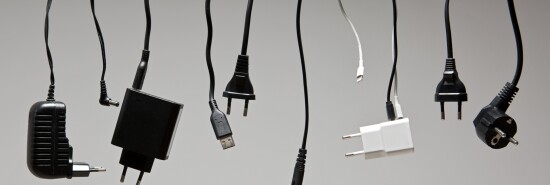
Things that don’t work and humans that do
Rob Long
I was in a small group meeting recently to discuss the progress a certain web-based publication has made in reaching and developing its audience. The person running the meeting wanted to show us a few important graphs, and it was then that we all heard these alarming words:
“Just a second,” he said. “Let me connect my laptop to the big screen on the wall.”
WHEN QUIRKY ONLINE FUN TURNS SINISTER
“Let me just,” the speaker murmured as he began searching for a cord with the right-looking plug to stick into his computer. Several people in the room called out helpful, though contradictory, advice. “Make sure you select the right port!” someone called out. “I don’t think you need that if you use Airplay,” another good Samaritan shouted from somewhere. “Just log onto the Wi-Fi network and then search for this monitor and enter the password, and then it should work,” another person from the back said.
People, I think we can all agree, are at their most irritating when they’re trying to be helpful. Some members of the group had even risen halfway out of their chairs, ready to intervene physically if our leader continued to be flummoxed. Another one was already at the flat screen monitor, fiddling with buttons on the remote control device that we assumed at the time controlled the television. (It didn’t, as it turned out. It was for the air conditioning unit above the window.)
“I’m just gonna … I think this is the right …” And he plugged whichever cord looked right into his computer and waited for a moment. We all held a collective breath and leaned forward, like ancient cave people waiting for the shaman’s magic to work, for the fire to roar to life, for the cave painting to speak, for the baby to be healed.
What happened instead was this: The screen suddenly came to life, broadcasting an episode of Murder, She Wrote, which was being shown at that moment by the cable provider that was connected to the television in the conference room. Jessica Fletcher, the disarming but sly detective played unforgettably by Angela Lansbury, was riding her bicycle through the Maine countryside as the group leader tried to solve the problem by going into his Settings menu while the person at the television began to search for the correct remote.
“I think I’ve seen this episode,” one of the people in the meeting called out. “Do you remember who did it?” someone else asked unhelpfully. (OK, it was me.) A side conversation erupted among the people who remembered that episode. There was some disagreement about the outcome. Some insisted that it was the stepdaughter. Others recalled that it was the quiet horse trainer.
About 10 minutes went by. Finally, some combination of laptop settings and input adjustments on the television — all accompanied by more helpful suggestions from the gallery and a general consensus that Murder, She Wrote was a great show, and why don’t they make shows like that anymore? — did the trick. The graph showing the five-year growth in Unique Monthly Users and Engagement and Sharing of Content popped up on the screen, and the meeting continued.
CLICK HERE TO READ MORE FROM THE WASHINGTON EXAMINER
This is a familiar story: The thing that’s supposed to work effortlessly doesn’t, and the intuitive and simple connection isn’t. Yet we persist in trying to build cars that drive themselves, computers that think, and watches that call 911 when you fall. Here’s what we all know but have a hard time saying out loud: Most of that stuff doesn’t really work, at least not without a lot of trial-and-error adjustments and frustrated plugging and unplugging.
When some of us were wondering why they don’t make Murder, She Wrote anymore, the answer was right in front of us. That show has been replaced by the (it seems like) dozens of crime shows set in CSI labs and in front of computer monitors, in which people read off DNA results and search databases for similar MOs, rather than riding around on a bicycle like Jessica Fletcher and noticing that the horse trainer was wearing mismatched gloves. She’d have the bad guys arrested and jailed in the time it takes one of those CSI people to select the correct port to connect the laptop to the big screen. And then off she’d go while the rest of us were still stuck in the meeting, trying to get the technology to work and calling out annoying suggestions to the guy with the remote.
Rob Long is a television writer and producer, including as a screenwriter and executive producer on Cheers, and he is the co-founder of Ricochet.com.
